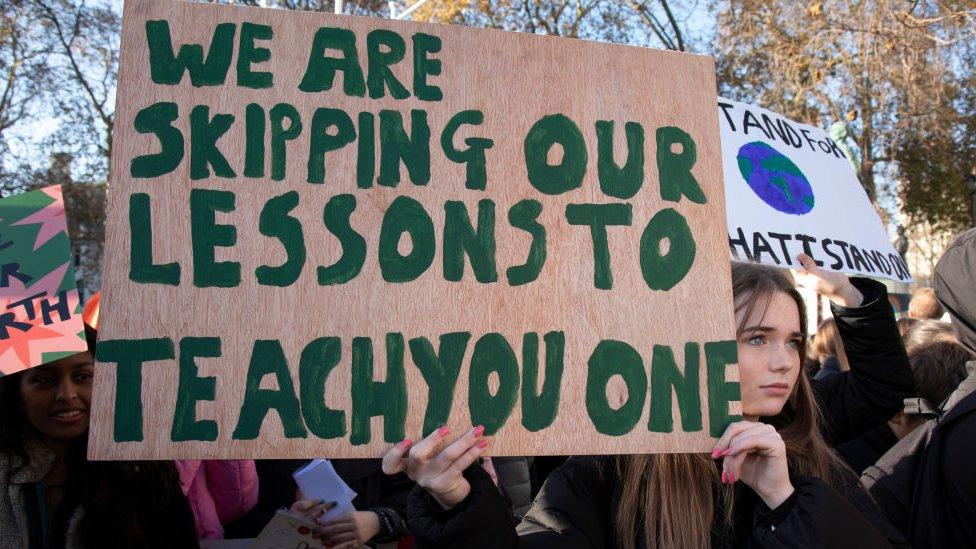Train strike: Why are there train strikes this week?
- Published
- comments
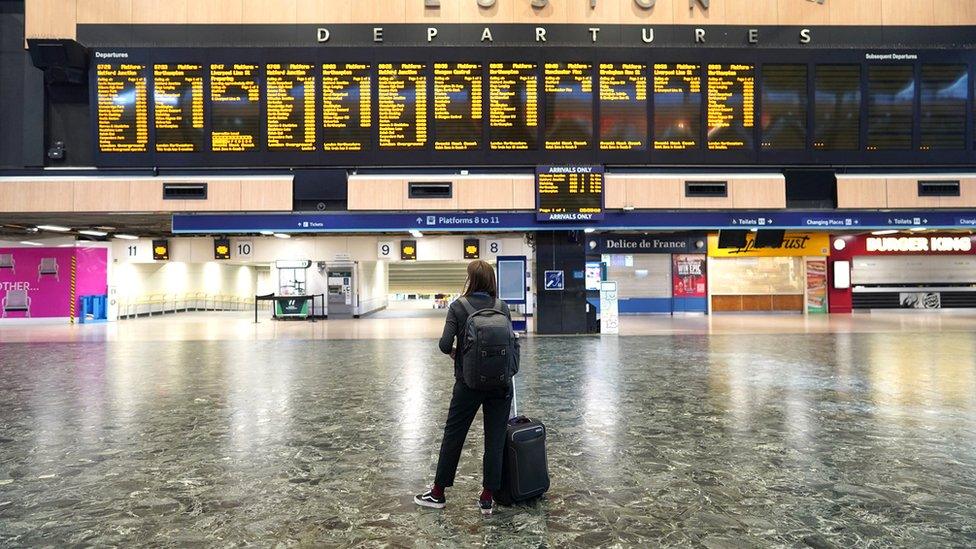
Several train journeys have been cancelled and people are being urged to find alternative ways to travel during the first of three planned rail strikes today.
As part of the protests, railway staff on many major train lines are refusing to work on Tuesday, Thursday and Saturday. This is what is known as strike action, or a strike.
Around 40,000 railway workers across the UK are striking because they say they want job security, better pay and better working conditions.
UK Rail strikes: Ricky reports on why are they happening
The idea behind the strikes is to show how important workers are to the companies they work for, to the customers they support and also to people who have the power to influence workers' rights - the government.
The government has said it's not their responsibility to get involved in negotiations and says it's up to the train operating companies and the RMT union, which represents workers rights, to work things out.
While some members of the public support the strikes this week, other people are against them.
Read on to find out why people are divided on this issue and to find out about how the strikes might affect you.
When are the rail strikes happening?
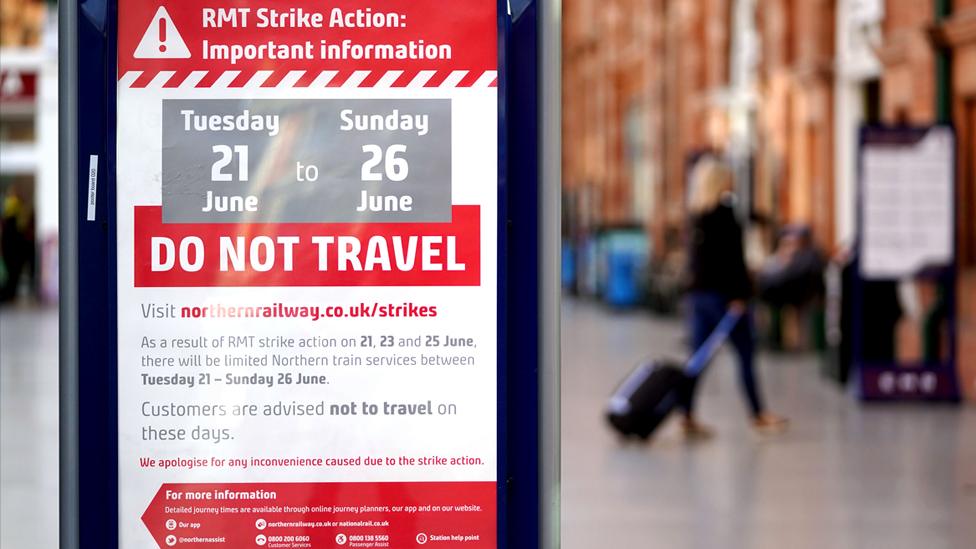
The strikes are taking place across multiple railway lines throughout this week.
There will be strikes on train lines on the following days:
Tuesday 21 June
Thursday 23 June
Saturday 25 June
There will also be a strike on the London Underground line on Tuesday 21 June but there are no other strikes planned on the other days.
Separately, the train drivers' union Aslef has announced walkouts over pay affecting Hull Trains on 26 June, Greater Anglia train services on 23 June, and on Croydon Tramlink on 28, 29 June and 13 and 14 July.
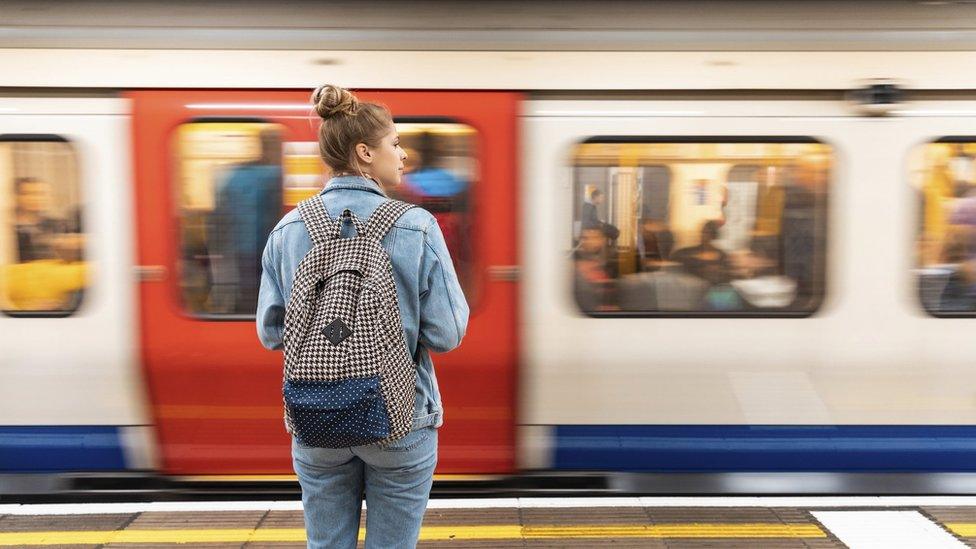
Who will be affected by the rail strikes?
It's expected that services will be affected right across Great Britain from Tuesday (Northern Ireland Railways is not involved).
For travellers who want to use a train service that is run by one of the following companies, on any of the days of the strikes, they have been told to expect cancellations and delays.
Some services will be reduced, and trains that are running will make their final journey much earlier in the day than usual.
The services affected include:
Avanti West Coast
C2C
Chiltern Railways
Cross Country Trains
Croydon Tramlink
Elizabeth Line
Greater Anglia
Great Western Railway
Hull Trains
LNER
Northern Trains
South Eastern Railway
South Western Railway
TransPennine Express
West Midlands Trains
Network Rail - the company that manages most of the UK's rail network - says that it hopes that as much as a fifth of rail services will still be running on the days of strike action. This means that not all services will be cancelled, but a large majority will be.
Why is there a rail strike happening?
Railway workers are unhappy with how they are being treated by their employers.
Many of these workers are represented by a group called National Union of Rail, Maritime and Transport Workers, or the RMT union for short.
The RMT has said that its members are striking because of "pay freezes, threats to jobs and attacks on their terms and conditions".
They believe that many railway staff are being treated unfairly. Their hope is that strikes will encourage employers to treat their workers better.

Why strike instead of another way of protesting?
Railway strikes can be an effective form of protest because of how many people they impact.
A railway strike is bad for travellers who won't be able to reach places they need to get to, like work and school.
It's bad for railway companies who run these services, as they will lose out on money from travellers and may have to offer refunds for cancelled services.
And strikes also often attract a lot of interest from news and media outlets, bringing more attention to an issue that people may not otherwise have heard about.
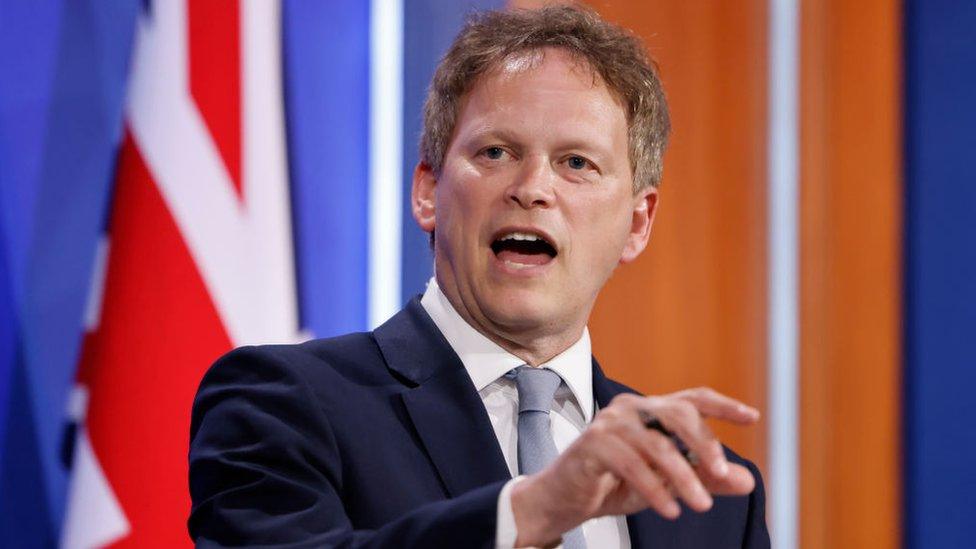
The UK's Transport Secretary, Grant Shapps, called the strikes "unnecessary"
What has the reaction been?
The reaction has been very mixed.
The politician in charge of the UK's transport - Conservative minister Grant Shapps - is angry with the strikes and calls them "completely unnecessary".
He says that strikes are "punishing millions of innocent people" who need trains to get to work, hospital appointments or to travel to school.
Meanwhile the Rail Delivery Group, which represents train companies, has criticised the protests, saying "no one wins in the event of a strike".
Why do people disagree with the strike action?
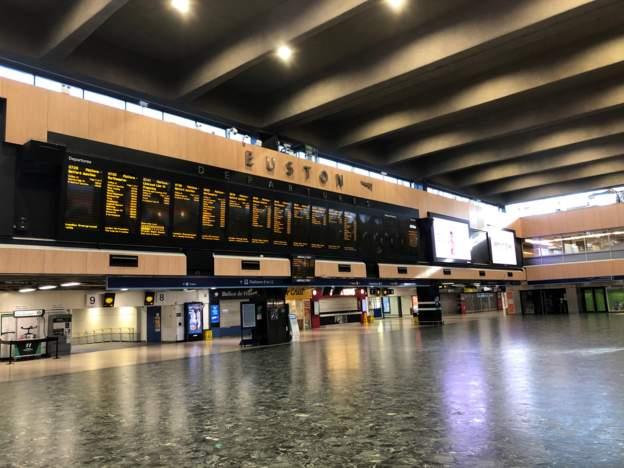
An empty Euston station in London
The numbers of people using the railways is down by a third as people continue to work from home following the coronavirus pandemic.
So some argue that it makes sense that there will be job losses on the railways with fewer people using the service.
But one of the leaders of the RMT union, Mick Lynch doesn't agree.
"The railways [are] coming back, the railway's growing, the week before last we had 90% of pre-covid travel.
"We need to get rid of congestion, we need to get rid of carbon emissions and the railway and public transport is essential to that."
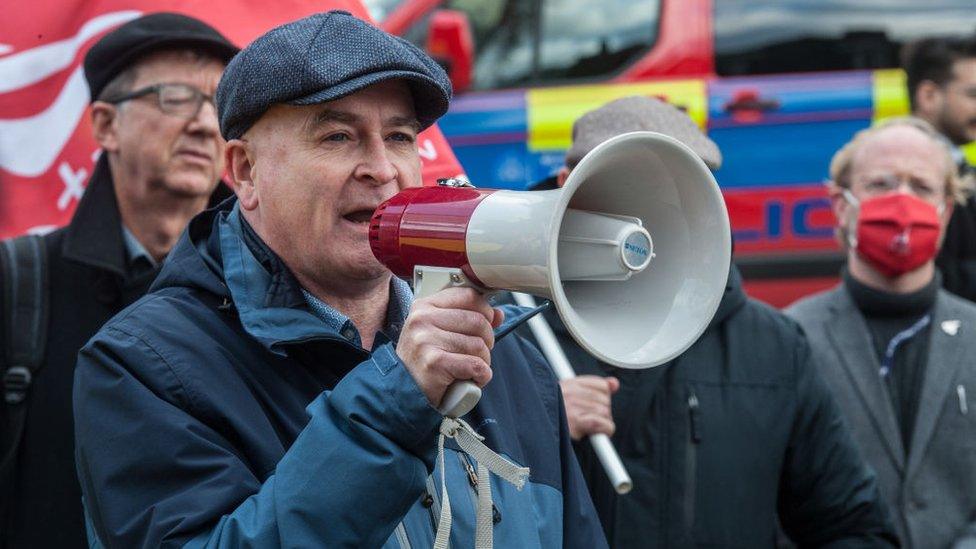
The Secretary-General of the RMT union says the government should do more to support negotiations
Another argument against the strike action is that the pay increase wanted by railway workers is more than the pay increase offered to other professions such as nurses and teachers.
"What we need is a square deal for everyone in Britain," says Mick Lynch.
"If railway workers get poorer, people who own railway companies will get richer and they won't be donating any of that profit or any of that wealth to low paid workers. So let's get a deal for everyone in this country."
What else has the RMT union said?
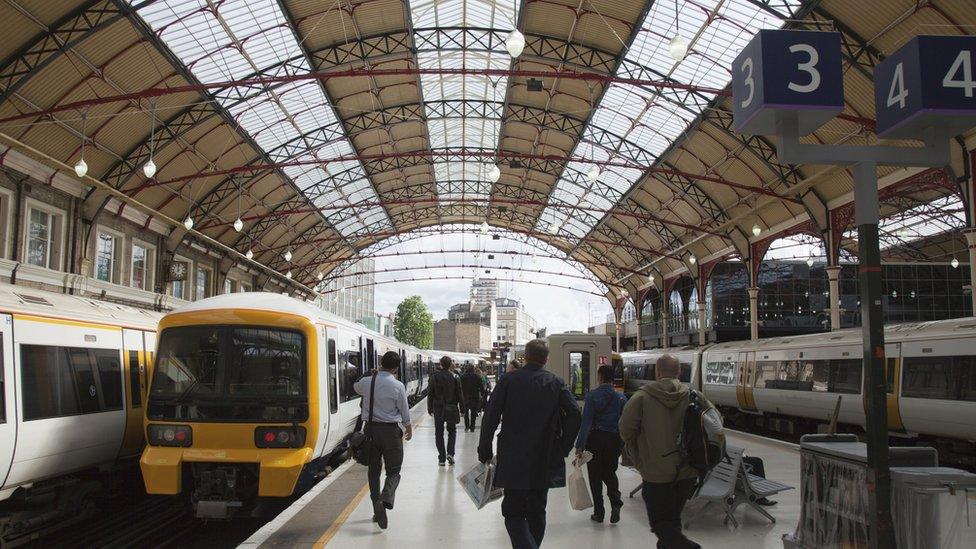
Mick Lynch from the RMT union, argues that more needs to be done to make sure that railway workers are supported because of the rise in inflation and the cost of living.
"We've got a working class, working full-time hours, having to go to food banks and take state benefits," Mr Lynch said, saying he didn't want to see railway staff put in the same situation.
And a politician from opposition party Labour accused the government of not doing enough to prevent the strike.
Speaking to the BBC, Lisa Nandy said: "We know what it means when the railways grind to a halt, but that's why the Government has got to get round the table with the cleaners and the ticket office staff and the station workers to resolve this because they're the only people who can."
What do you think?
We want to know what you think about the strikes. Do you think they are a good way to bring attention to an important issue? Or do they cause too many problems?
And are you going to be affected by the strikes this week?
Let us know in the comments.
- Published2 December 2019
